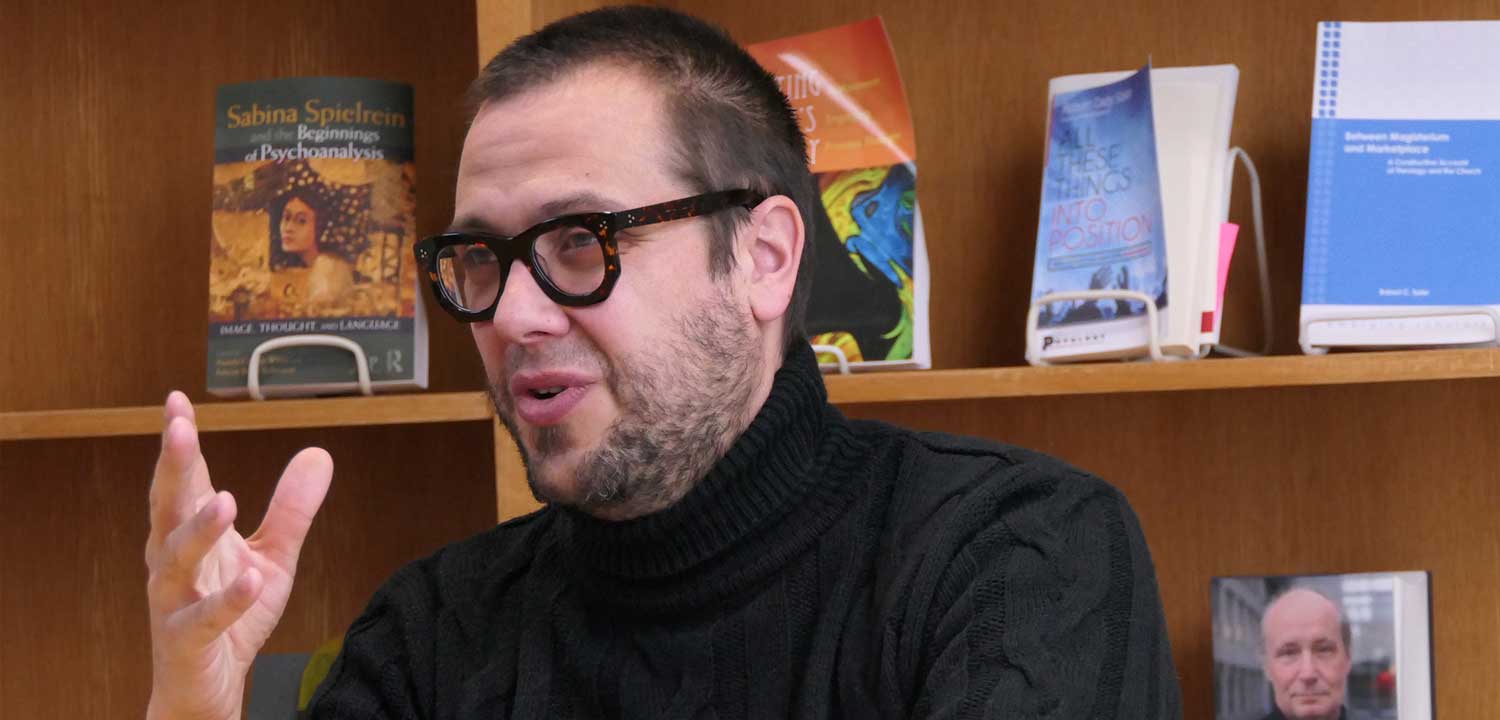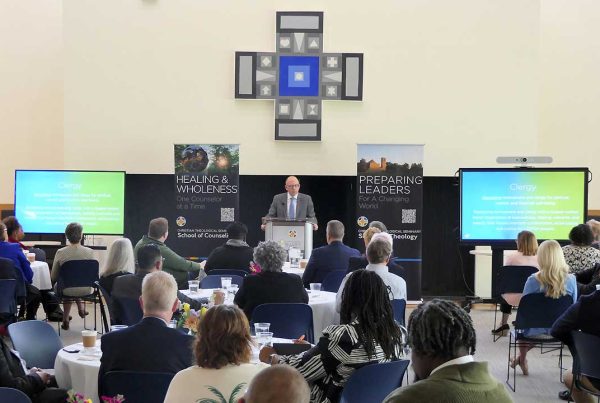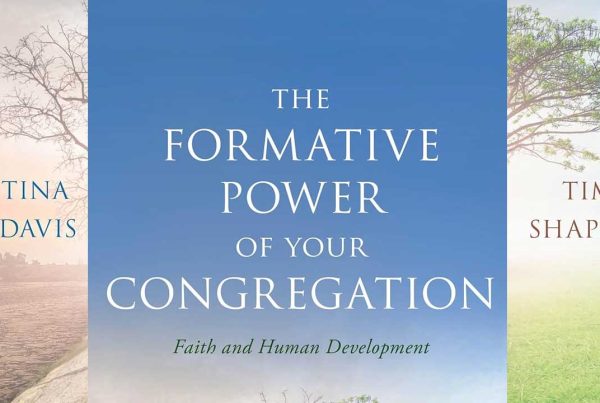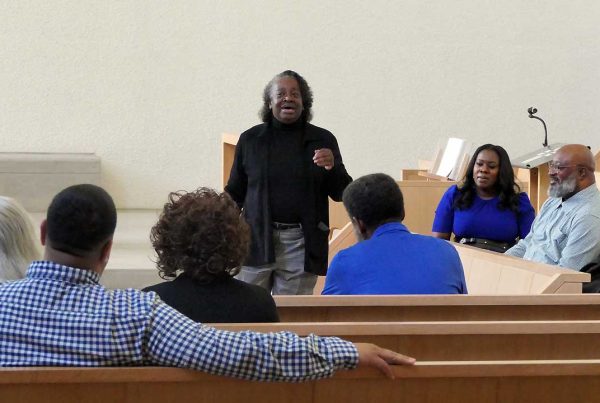Beyond “Natural”: Queerness and the Strange Surprises of Salvation
by Dr. Robert Saler
CTS Interim Dean of the Faculty, Assistant Professor of Theology and Culture, and Executive Director of the Center for Pastoral Excellence and the Lilly Endowment Clergy Renewal Program
One of the common “clobber texts” that is used to justify Christian condemnation of LGBTQIA+ people is Romans 1: 24-27, which the NRSV translates as follows:
Therefore God gave them up in the lusts of their hearts to impurity, to the degrading of their bodies among themselves, because they exchanged the truth about God for a lie and worshipped and served the creature rather than the Creator, who is blessed for ever! Amen. For this reason God gave them up to degrading passions. Their women exchanged natural intercourse for unnatural, and in the same way also the men, giving up natural intercourse with women, were consumed with passion for one another. Men committed shameless acts with men and received in their own persons the due penalty for their error.
If one were to go only by this passage, then it would seem that Paul is operating here as a theologian for whom what is “natural” naturally equates to what is Godly – that is, whatever can be proven to be “natural” is seen as Godly, and what is “unnatural” is therefore sinful.
If this were to be Paul’s stance, then he would have quite a lot of company in the Christian tradition – among theologians, but even more so among Christians who have baptized seemingly “natural” distinctions with theological normativity. “Women are naturally inferior to men, therefore God wishes for male headship.” “Whiteness is naturally superior to other races, therefore whiteness should be normative.” “There are hierarchies inscribed in nature, so therefore some humans should rule over others, and thus rebellion is chaos.” These are, as even the most cursory glance at Christian history shows, not marginal stances within the tradition – both politically and theologically, equating “the natural” with “God’s will” has been a common theological error.
But, to be clear, it is an error. As Dietrich Bonhoeffer, liberation theologians, disability theologians, and so many others have instructed us through the ages, the appeal to “nature” as a fixed and static reality – and therefore a normative one – not only is not supported by the best insights of the Christian tradition, but is actively subverted by them.[1] After all, the early church argued that the entire point of the incarnation of God in Christ is so that human nature could be transformed into something capable of sharing the divine life – theosis or divinization. That does not mean that we become more than human, but that human nature itself – as Kathryn Tanner especially has argued – has a fluidity, a porousness, a shape-ability when it comes to how grace can take previously fixed realities and open them to more life-giving possibilities.[2]
And what if Paul himself is not, in fact, a theologian of “normative nature?” After all, the main theological concern expressed at the heart of Romans is one concerning the limits of God’s inclusive love, namely, the question of how God can continue to be faithful to God’s people Israel if they do not accept Jesus as the Messiah. In a theologically masterful construction in Romans 11, Paul uses the famed metaphor of the wild branch being grafted onto an olive tree in order to argue that what God is up to in Christ is to create a situation in which all – Jews and Gentiles alike – will ultimately be brought under the auspices of God’s saving grace. And notice, this metaphor itself depends upon a highly UN-natural horticultural operation! For Paul, God’s going against nature is precisely what is saving about God’s action when it comes both to God’s people and all the nations of the earth.
In short, even at the heart of a tradition that has too often treated what the age sees as “natural” as theologically normative, we find a subversion of that very same idea. We find an image of a sort of playful divine operation whereby interrogation of what seems “natural” in any given era opens up surprises – and that these surprises are salutary in the most literal sense. Openness to divine surprise, to divine undermining of fixedness that we ascribe to the limits of our imagination, is what saves.
As we think about what it means to be attentive, as Christians, to what God is up to in the struggle for justice for our LGBTQI+ people, I believe that the beating heart of our tradition cautions us to be skeptical of any normative appeal to what is “natural” or “unnatural.” Instead we are to expect the unexpected, to be open to the surprises that come when we are gifted with imagination expansion on the part of those who too often have been shut out from what Willie Jennings calls “the Christian imagination,”[3] and to believe with confidence that our struggle for justice on behalf of all threatened people is joined with God’s work of bestowing more grace than what we can envision for ourselves, much less for others.
References:
[1] Cf. Bonhoeffer, Dietrich, 1906-1945, Douglas Stephen. Bax and John W. De Gruchy, Creation and Fall: A Theological Exposition of Genesis 1-3. Minneapolis, Fortress Press, 1997.
[2] Cf. Tanner, Kathryn. Christ the key. Cambridge: Cambridge University Press, 2010.
[3] Jennings, William James. The Christian Imagination: Theology and the Origins of Race. New Haven: Yale University Press, 2010.






